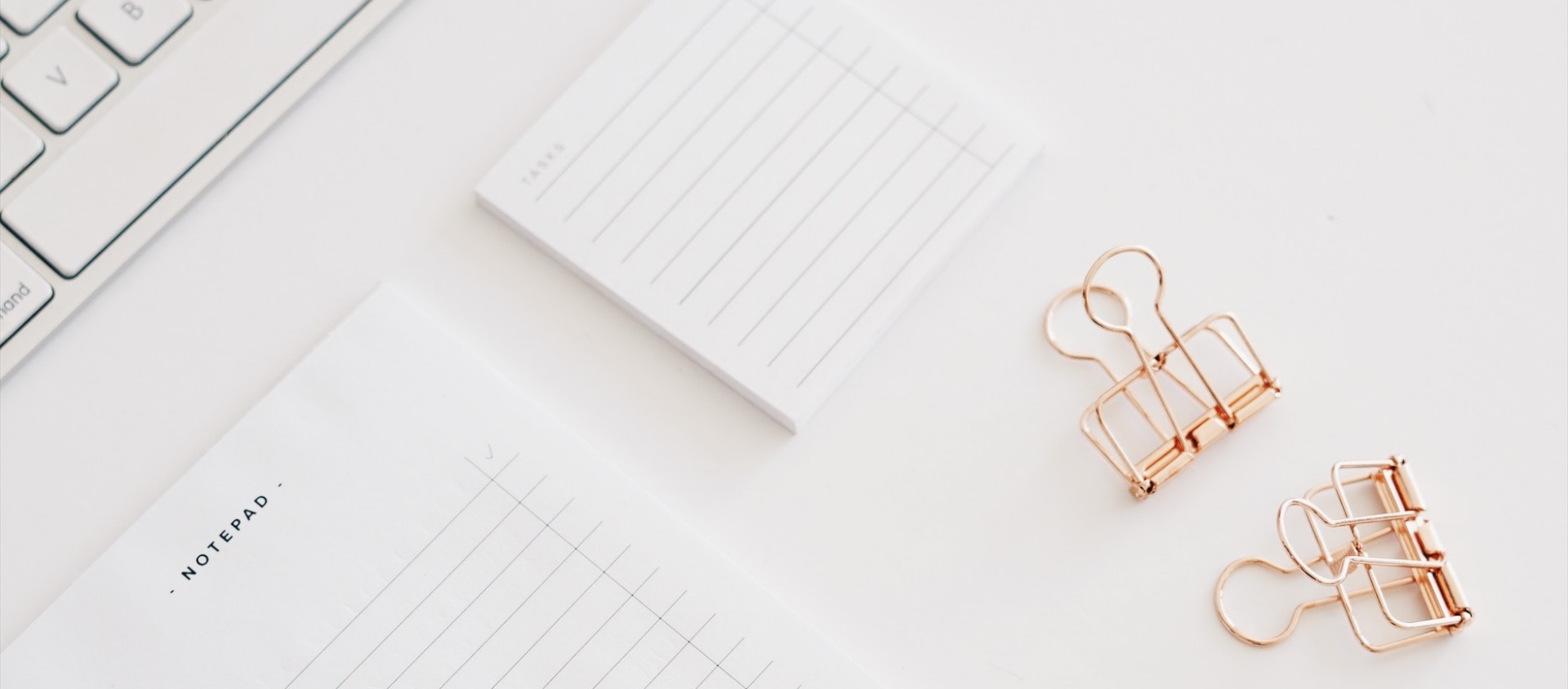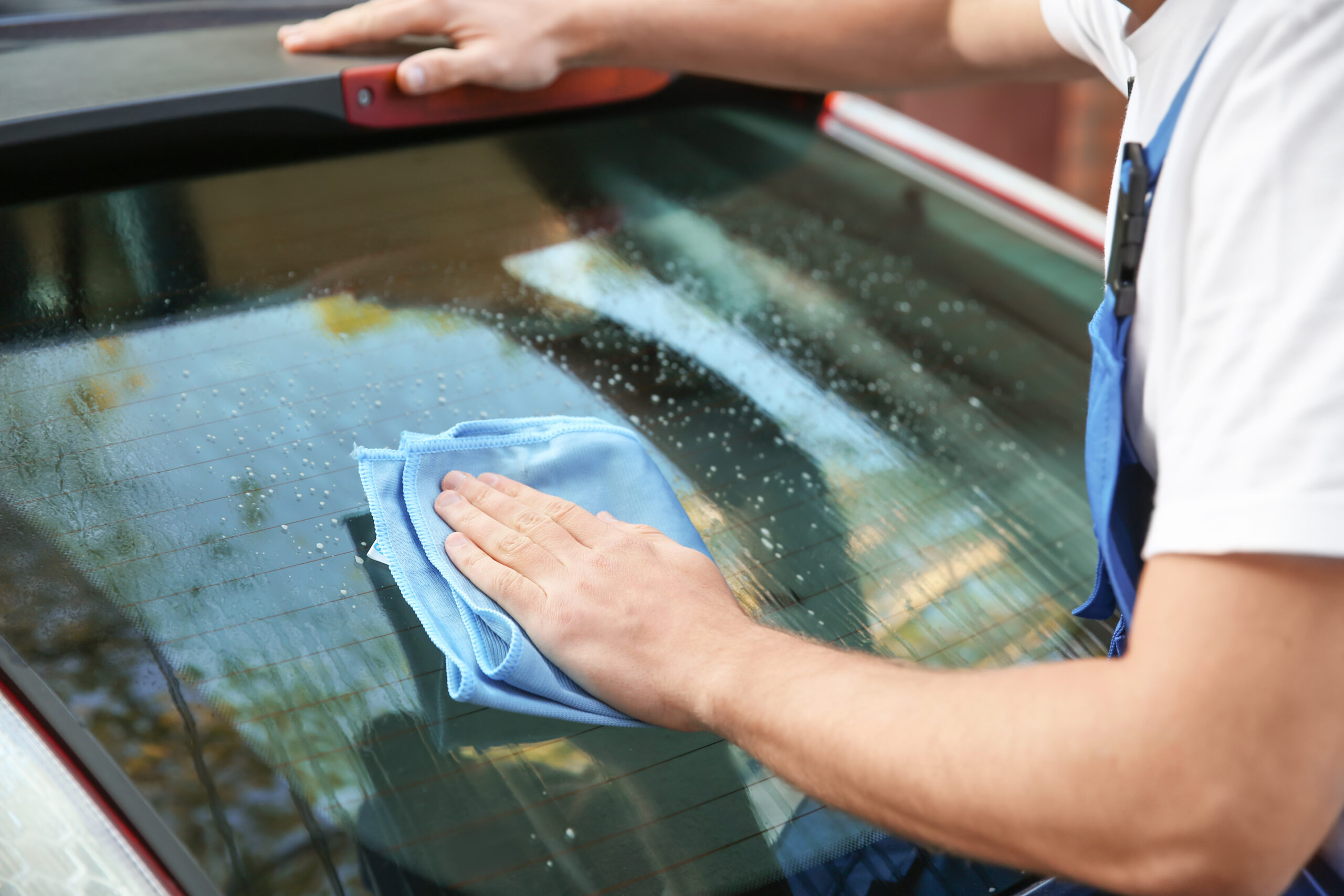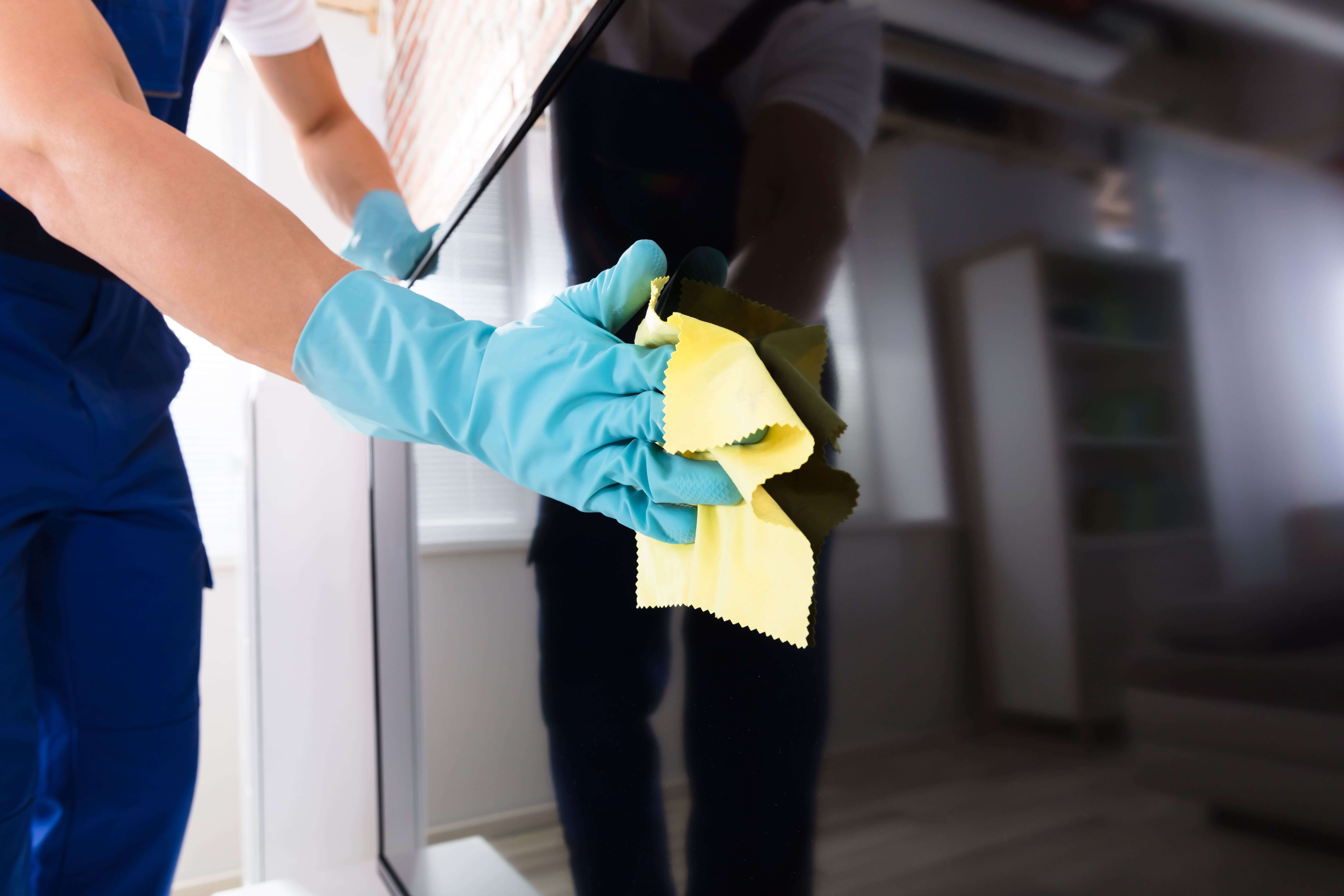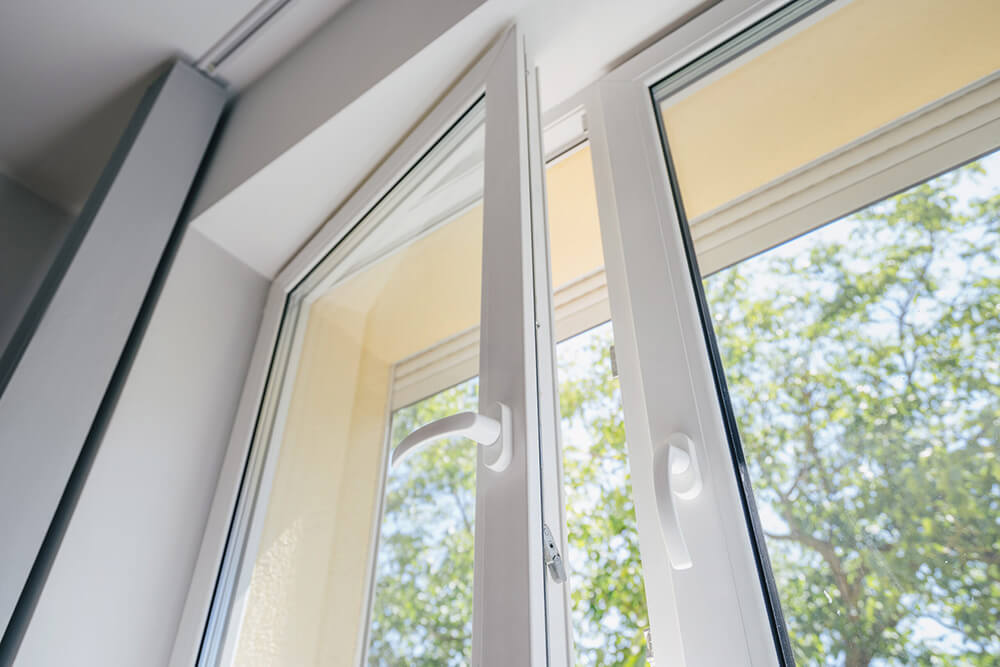Pressure Washing Secrets
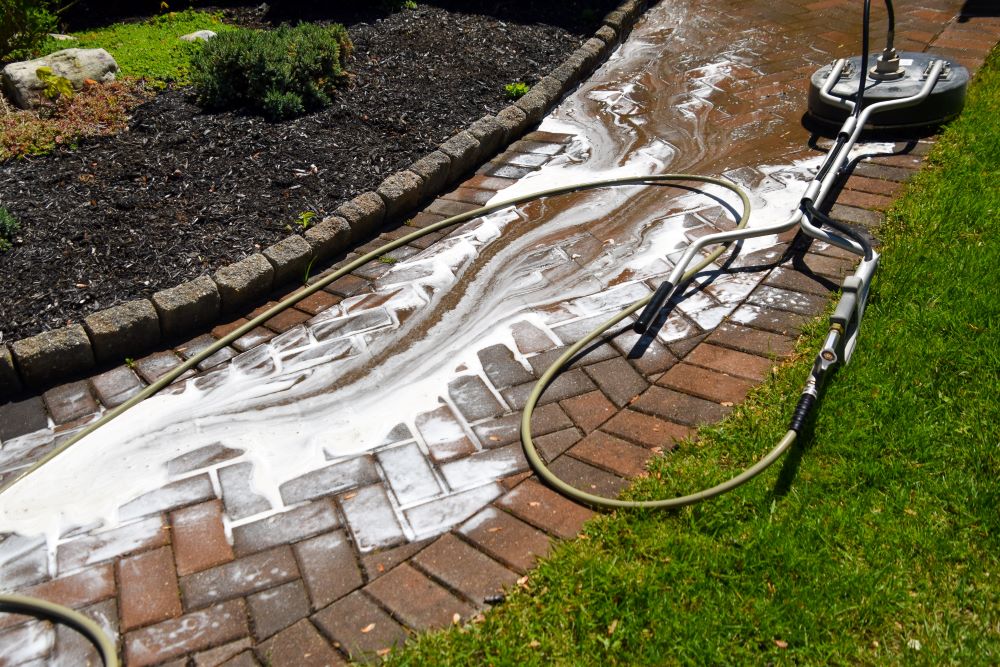
A pressure washer is one of the best tools for cleaning all around your home and business. Taking the time to learn some pressure washing tips and tricks is essential to understand how to use the cleaning tool effectively, whether you do the cleaning yourself or you hire a professional to clean for you. Learn what pressure washing is good for and what it shouldn’t be used for. Find out about how you should clean concrete and the outside of a house and how to operate a pressure washer like a pro with these pressure washer hacks.
What Can I Use a Pressure Washer For?
A pressure washer is a versatile cleaning tool that can be used to clean most exterior surfaces around a home or a business. When handled by a skilled operator, a good pressure washer can be used to clean all of the following surfaces and more.
- Siding
- Concrete
- Asphalt
- Fencing
- Decking
- Lawn Furniture
- Grills
- Gutters and Downspouts
- Pavers
- Walkways
It’s essential to be mindful about how you angle the pressure washer, what tip you use on the end of the tool, and how much distance you have from the thing you’re washing because you can damage softer surfaces, such as decking, fencing, lawn furniture and more if you use too much pressure or the wrong nozzle to clean with.
This is why hiring a professional to do the pressure washing for you is a wise decision that can save you money. The same considerations apply to power washer dos and don’ts, but you must also think about what surfaces are temperature-sensitive before hitting them with the hot water of a power washer.
What Should You Not Do With a Pressure Washer?
After experiencing the power and utility of a pressure washer, it can be tempting to try to clean everything with it. There are some things you should never clean using a pressure washer, though. If you clean any of the following items with a pressure washer, you’ll damage them, and in some cases, you’ll put yourself in danger too!
- Live Animals or People
- Plants You Want to Keep
- Glass
- Air Conditioners
- Asphalt Shingles
- Wood Siding
- Stained Wood
- Power Meters or Boxes
Professionals know not to pressure wash anything on the list above, but if you’ve just started using a pressure washer, you may be tempted to try cleaning things you shouldn’t, so be careful and do research before cleaning anything.
What PSI Pressure Washer to Clean Concrete?
The best pressure washer for cleaning concrete is a tool that produces between 3,000 and 4,000 PSI and delivers water at a rate of 4.0 GPM or greater. Use something at least that powerful, and you’ll be able to clean most contaminants off concrete effectively. One of the pressure washing tips for concrete you should utilize is to equip the tool with a surface cleaner whenever you clean concrete. Using a surface cleaner will make the work go faster, give you a more even finish and help you achieve your goals effectively.
How to Clean the Outside of a House without a Pressure Washer
Pressure washing a house on the outside is the fastest and most effective way to clean it. It isn’t the only method available to you. You can also use a standard hose, cleaning chemicals, and a long scrub brush to clean off your home’s exterior. Scrubbing takes significantly longer and will leave more chemicals and cleaners around the house, but it can be used if you don’t have access to a pressure washer. Unfortunately, once you understand how to pressure wash a house you’ll know it’s the most efficient cleaning method by far, and you won’t want to wash your home by hand anymore.
Can You Control the PSI on a Pressure Washer?
Yes, you can control the PSI on a pressure washer using the pressure control knob. Most high-powered pressure washers come equipped with a knob meant to control the pressure output. The pressure washer will come set at the maximum pressure output, but you can reduce the amount of pressure it generates using this adjustment. Turn the knob counter-clockwise to reduce how much pressure the machine allows during operation. Read the manual for your specific pressure washer to learn how to do this properly on your unit. Once you understand how to reduce the pressure of your washer, you can use it for more delicate surfaces with good results.
Can a Pressure Washer Be Used as an Air Compressor?
While it is possible to use a pressure washer to compress air indirectly by way of a large tank with both water and air valves on it, this is highly inefficient and not recommended.
Some people also decide to turn an air compressor into a pressure washer, to make a sort of 2 in 1 pressure washer air compressor, but this isn’t recommended either. Some adapters allow you to use an air compressor as a pressure washer, but you won’t achieve enough pressure for this to be very useful.
It’s much more practical to purchase an air compressor and a separate pressure washer and to use the two tools as intended.
How Much Do Pressure Washers Usually Charge?
If you decide to hire a pressure washer to work on your home, you should expect to pay between $0.20 and $1.00 per square foot for the pro to work on your property. If you’re hiring a professional to do commercial work for you, you may spend between $0.75 and $1.50 per square foot.
Some companies charge an hourly rate for pressure washing services rather than by square footage. If you work with one of these companies, you should expect to spend between $60 and $120 per hour for residential and $250 to $500 per hour for commercial cleaning teams.
What Is the Best Cleaner to Use in a Pressure Washer?
There are many commercial pressure washing chemicals designed to be run through a pressure washer without doing any damage. If you’re going to directly send a cleaner through your pressure washer, be sure you invest in pressure washing chemicals specifically. Other cleaning agents, such as bleach, will damage a pressure washer if allowed to run through the unit.
It’s convenient to apply the best pressure washing chemicals with the pressure washer itself, and Simple Green and Karcher both make a few chemicals specifically for pressure washing that work well. Invest in some pressure washing chemicals for houses and driveways, and you’ll have all the cleaning agents you need.
If you do want to use chemicals like bleach to clean driveways and concrete, you can apply it using a garden sprayer and avoid damaging your pressure washer while still obtaining good results. We recommend getting commercial pressure washing chemicals and using them with your unit to clean faster and more efficiently. Most professionals obtain pressure washing chemicals wholesale and use large quantities of the cleaners on residential and commercial properties for the deepest clean.
Why Do You Put Soap in a Pressure Washer?
If you put soap or detergent in a pressure washer, you do so to apply a layer of the cleaning agent to the greasy or heavily soiled surface you’re cleaning. Soap works particularly well for exterior vinyl siding, and it’s a proper treatment before rinsing the surface with a high-pressure stream of water.
How Do You Pressure Wash Like a Pro?
Out of all the pressure washing secrets revealed here, this section is the most important. Professional pressure washing tips should focus mostly on applying the right amount of pressure to the surface you’re cleaning. If you understand how to do that and which pressure washing nozzles to use, you can achieve good results.
What PSI to Use For Cleaning Applications
Be careful to apply the right amount of pressure for your chosen cleaning application. Use the following guidelines to keep whatever you’re cleaning safe, and to deliver enough pressure to achieve a deep clean.
1500 PSI
- Grill
- Vehicle
- Bikes, Scooters
- Lawn Furniture
2500 PSI
- Deck
- Boat Dock
- Cedar Fence
- Boat and ATV
3000 PSI
- House Siding
- Driveway
4000 PSI
- Industrial Equipment Cleanup
- Paint Removal
Pressure Washing Nozzles
Knowing how to speed up pressure washing safely will yield better results in less time. One way to do that is by using the right pressure washing nozzles for the proper application. Using a larger degree nozzle lets you spray a wider area and clean more in less time. It also helps you avoid applying too much pressure to a soft surface you might damage. Use the following guidelines to help you utilize your different nozzles effectively.
- 0 – Cracks, crevices, breaking small limbs, high surfaces
- 15 – Concrete, brick, and patios
- 25 – Weeds, siding, lawn equipment, ATVs, fencing, decking
- 40 – Soft plastic surfaces, vehicles
- Soap – Apply soaps and detergents
Deep Clean Your Home Today: S&K Pressure Washing Services
Pressure washers are complicated to use, and pro-grade equipment is costly to purchase. Invest in pressure washing services, like the ones offered by our team at S&K, and get your home cleaned with stunning results. Get a quote for pressure washing near me prices, and see how valuable residential pressure washing services can be for you.
Contact Us
FAQs
How much should I charge to pressure wash a driveway?
You should charge between $200 and $400 to pressure wash an average-sized driveway. That’s a driveway of about 650 square feet. Most professionals use a rate of $0.20 to $0.80 for driveway pressure cleaning services.
How much should I charge a square foot for pressure washing?
You should charge between $0.20 and $1.00 per square foot for pressure washing services. Charge near the high end for roofing and other difficult surfaces and closer to the low end for home siding and driveways.
How much does it cost to pressure wash a house?
It costs an average of $250 to $750 to pressure wash a 1,500-square-foot house. A 2,500-square-foot house would cost $500 to $1500 on average. If you have an irregularly sized home, you can multiply by between $0.20 and $0.60 per square foot for a cost range estimate.
How much does it cost to pressure wash a driveway per square foot?
It costs approximately $0.20 to $0.80 to pressure wash a driveway per square foot. Only heavily soiled driveways will cost near the upper end of that price range normally.
How much does it cost to pressure wash a 2,500 sq ft house?
It costs between $500 and $1,500 to pressure wash a 2,500-square-foot house. This range varies depending on how dirty the home is, how tall it is, and what company you’re working with.
What are the risks of starting a pressure washing business?
When starting a pressure washing business, you risk investing in equipment that will break down and fail and cause harm to the properties you are working on. You must be careful to maintain your equipment properly and always have insurance before working on someone’s property.
What are the pros and cons of pressure washing?
Pressure washing offers a deep clean that can be achieved quickly. Pressure washing also has the potential to damage the surface being cleaned and can cause more harm than good when done by an amateur using the wrong equipment or technique.
How do you quote pressure washing?
To quote pressure washing, begin by measuring the length and width of the area to be cleaned and calculating a surface area in square feet. From there, you multiply your total area by an estimated pressure washing price per square foot to get the cleaning quote amount.
Ready to Get Started?
S&K is ready to get to work for you! A member of our team is available to discuss your needs and deliver a timely estimate of services.
Contact Us

